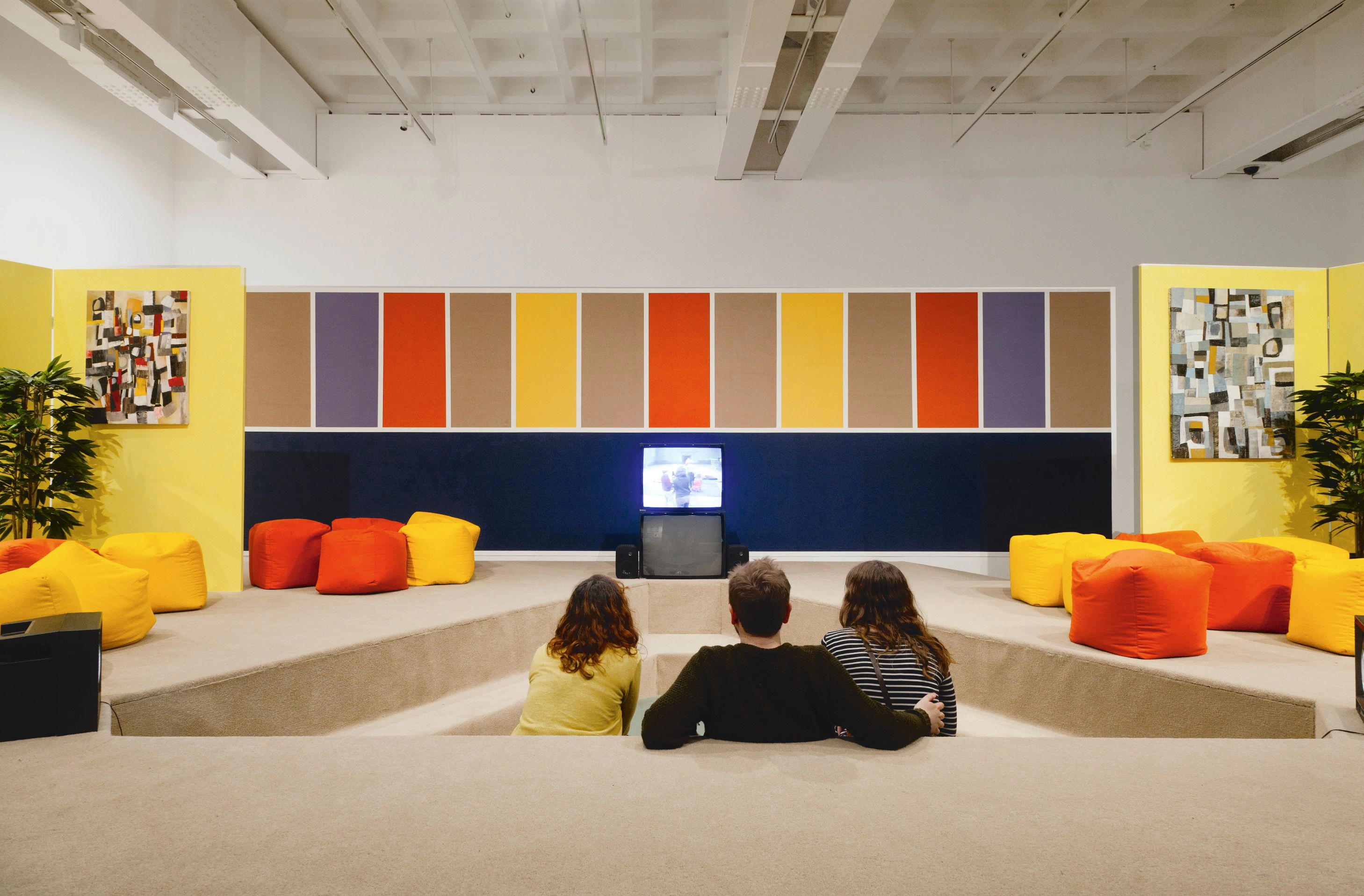
Open Forum, 2012, mixed-media installation (detail), ‘Rise Early, Be Industrious’, Arnolfini, Bristol
Open Forum, 2012
mixed-media installation, ‘Rise Early, Be Industrious’ at MK Gallery (Milton Keynes), Arnolfini (Bristol) and CCA (Glasgow)
Open Forum is a re-creation of a 1970s-style TV studio, situated on a raised platform and filled with soft carpeting, colourful screens, cubes used as seating and a conversation pit. Visitors find themselves cast as performers in the space, as if they are a television presenter or a member of the studio audience. A work station behind the scenes is also on show, suggesting the presence of support staff and technicians, who would usually be invisible to the television viewer.
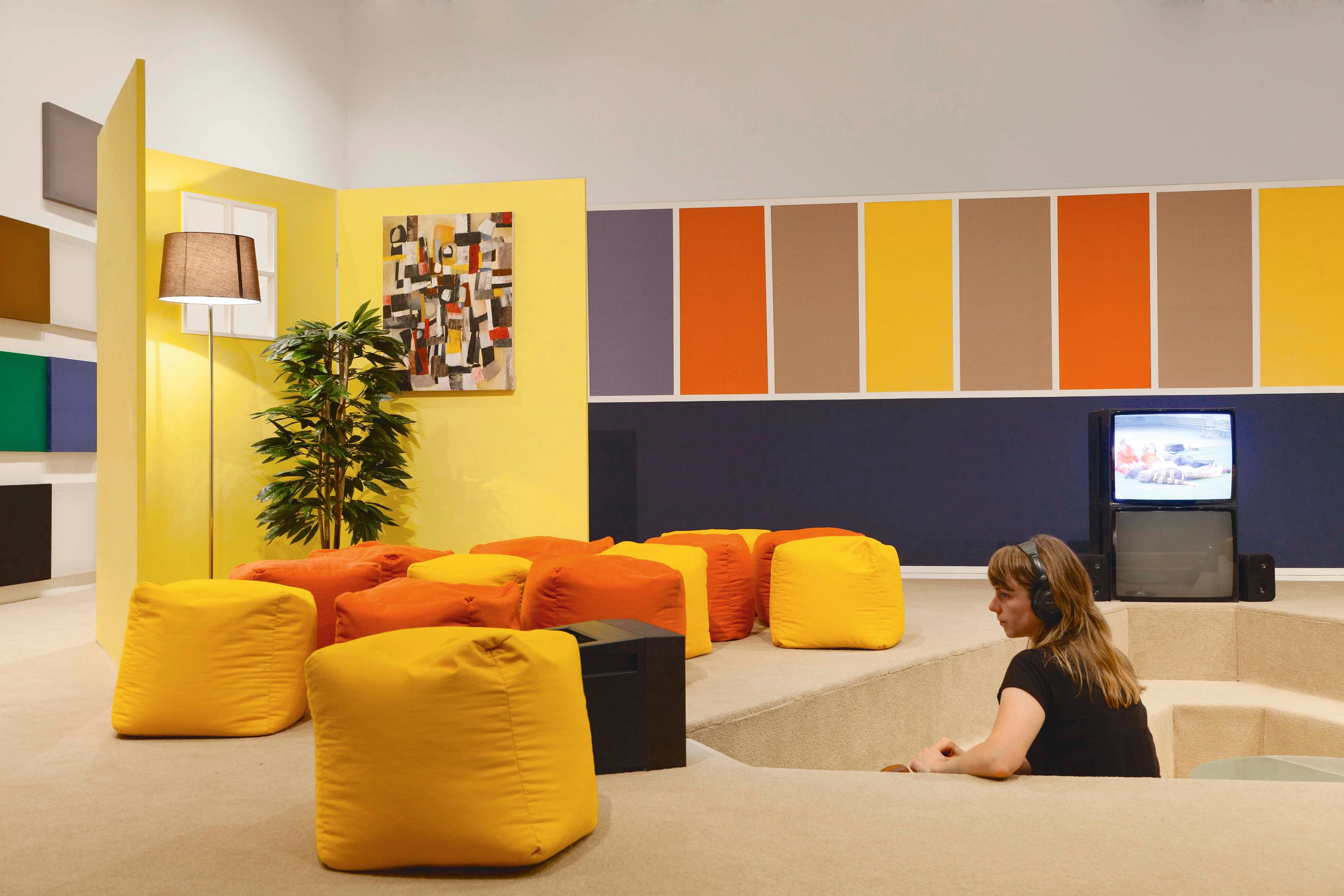
Open Forum, 2012, mixed-media installation (detail), ‘Rise Early, Be Industrious’, Arnolfini, Bristol
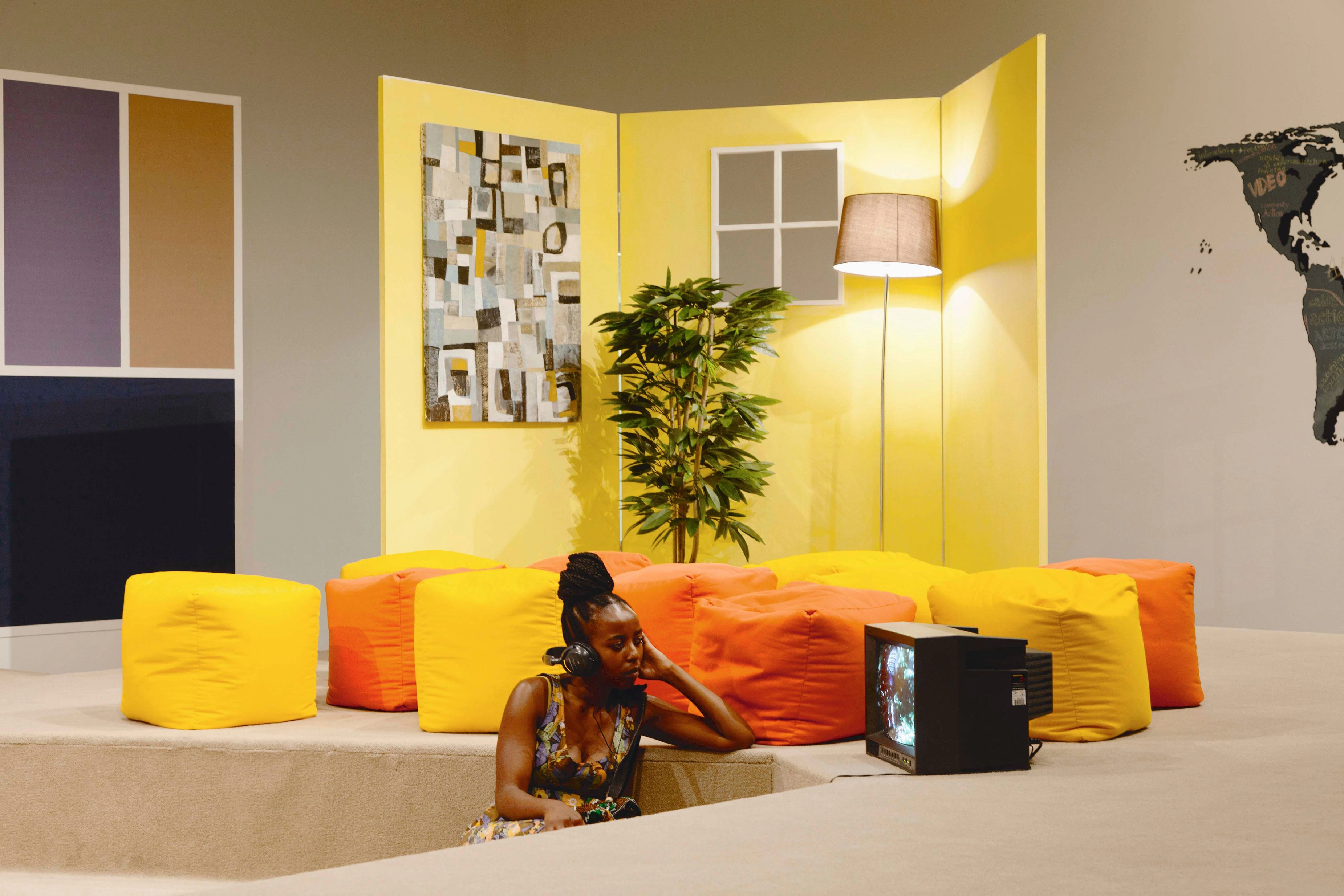
Open Forum, 2012, mixed-media installation (detail), ‘Rise Early, Be Industrious’, Arnolfini, Bristol
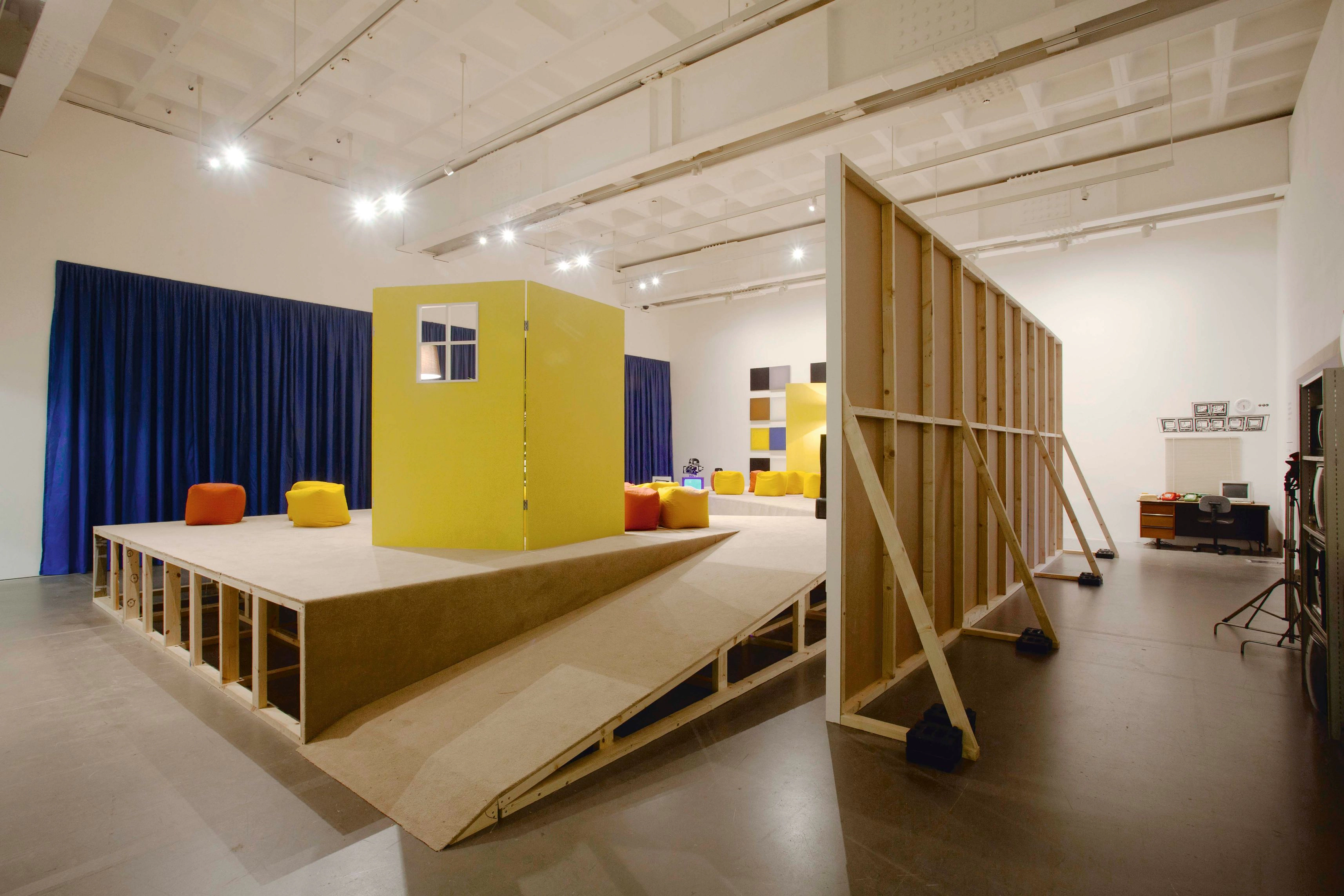
Open Forum, 2012, mixed-media installation (detail), ‘Rise Early, Be Industrious’, Arnolfini, Bristol
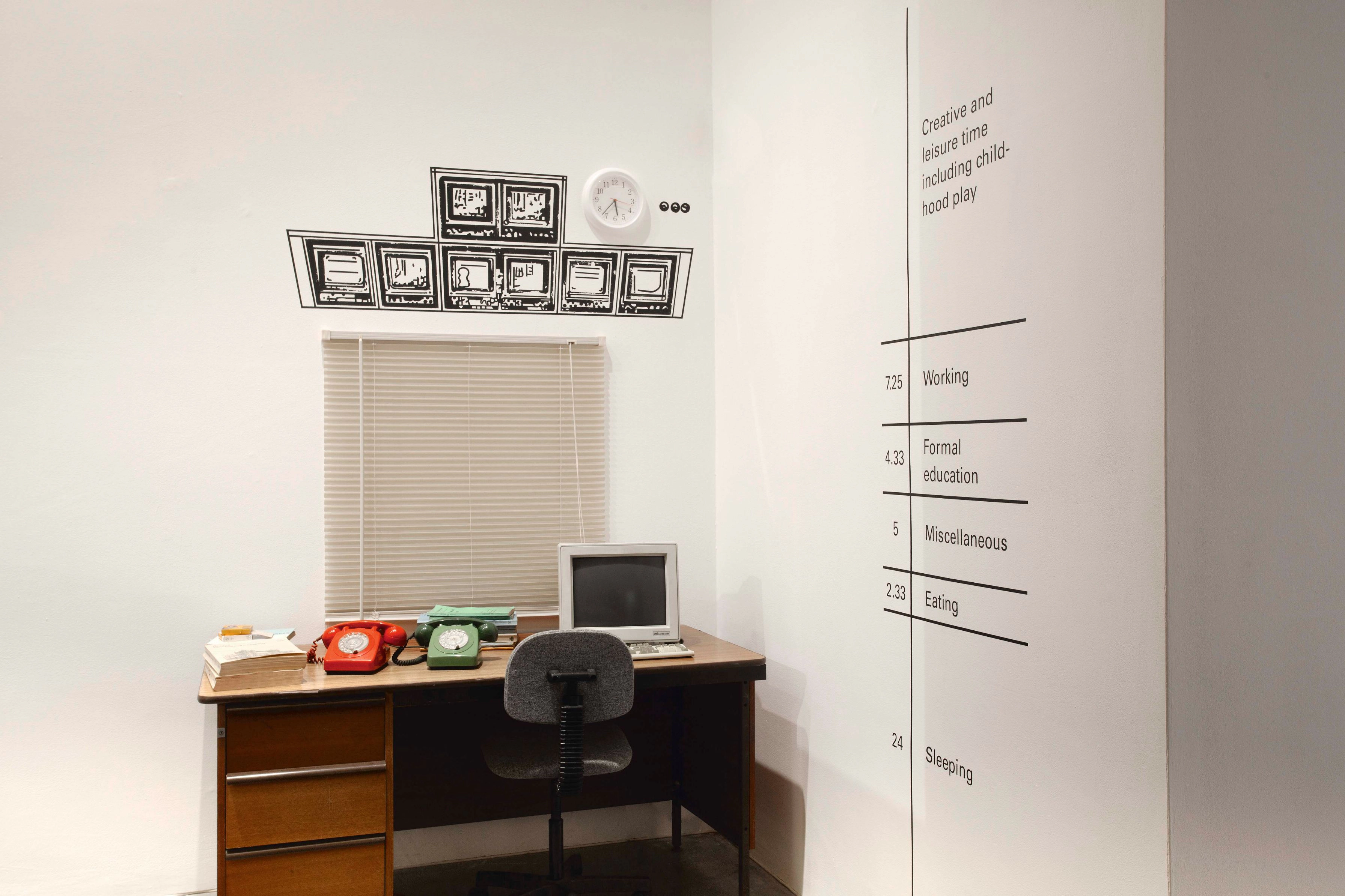
Open Forum, 2012, mixed-media installation (detail), ‘Rise Early, Be Industrious’, Arnolfini, Bristol
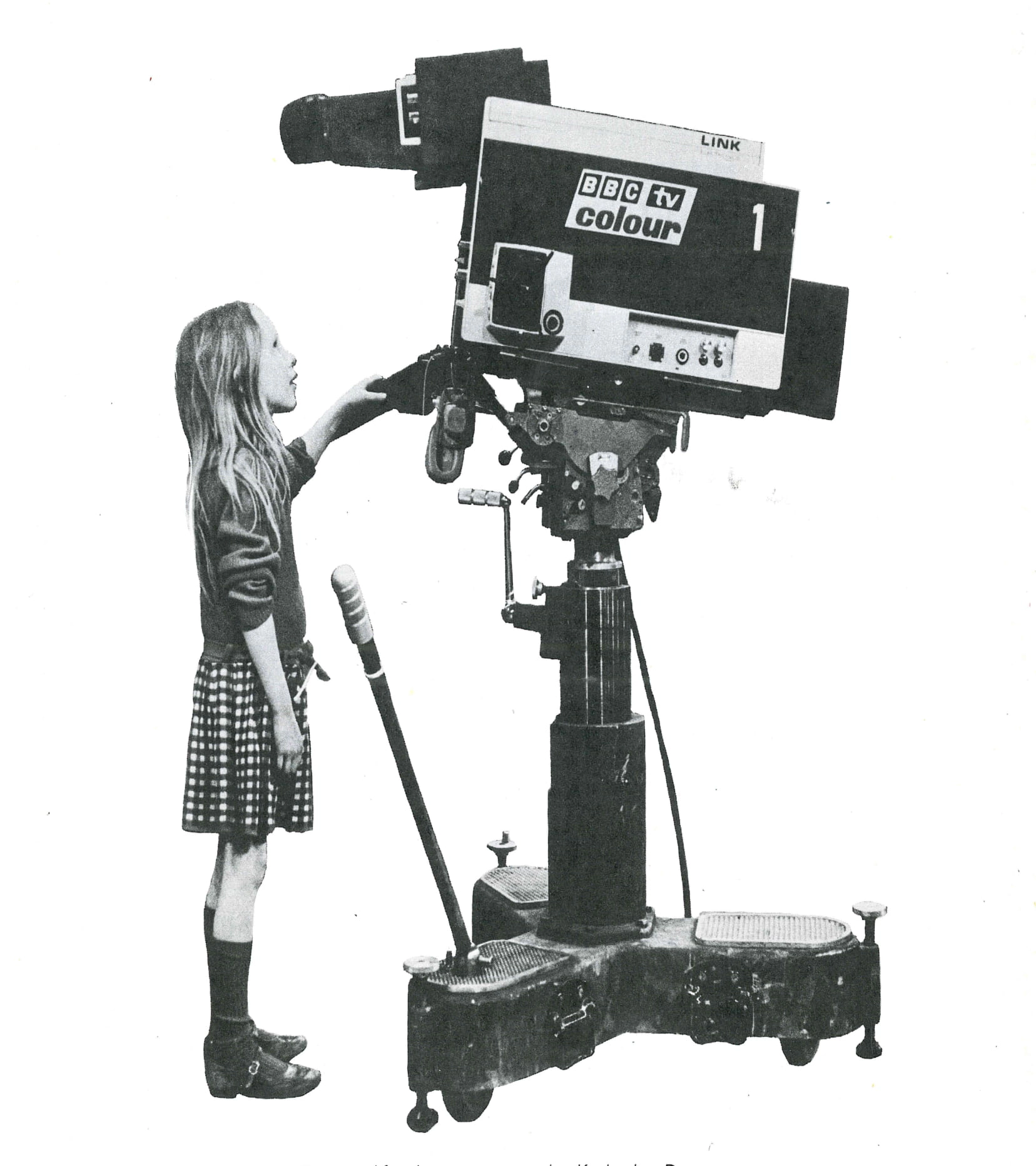
Children and Video, 1976, detail from Art and Environment course book
The installation contains archive material related to experimental art education in the UK, focusing on The Open University’s interdisciplinary Art and Environment course. Running from 1976 until 1985, the influential course’s chief agenda was to rethink the relation between art and society. The Open University (OU) itself was founded in 1969, with the aim of expanding higher education to working adults who had not previously had the opportunity to study at that level. For this reason, many of the students were from working-class backgrounds or were women who had previously missed out on education due to child care responsibilities. Courses were offered for home study without entry requirements, and lectures were broadcast on BBC television and radio.
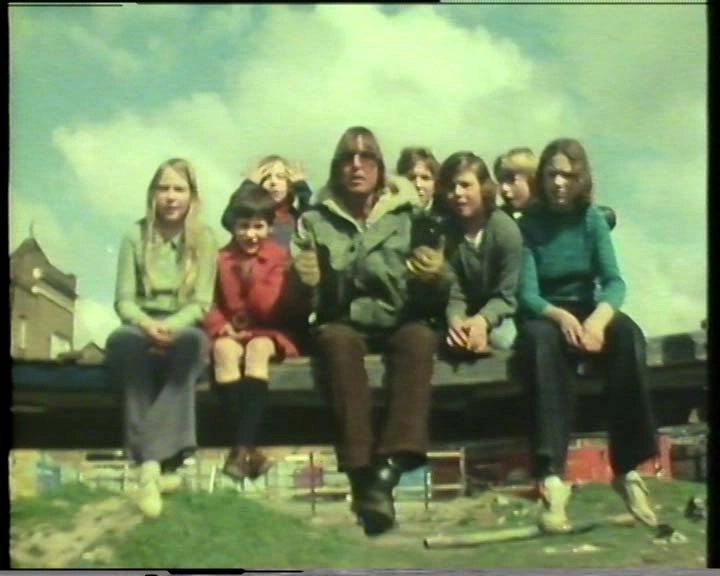
Whatever Will Be, 1977, still from programme made by the Art and Environment course and the BBC
Showing on monitors in the installation were three programmes produced as course material, in collaboration with the BBC. In Children and Video (1976) young children, aged between seven and nine, work with light-weight video cameras and recorders to make their own television programme. Play and Place (1976) demonstrates how children’s play evokes the larger society and environment on a miniature scale. In Whatever Will Be (1977), futurologist James Dator analyses the modern world and suggests how it can be improved through alternative lifestyles, communes and adventure playgrounds.
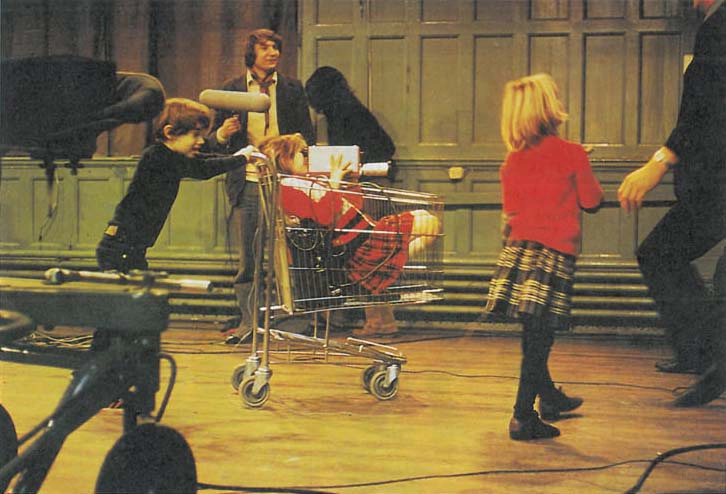
Children and Video, 1976, still from programme made by the Art and Environment course and the BBC
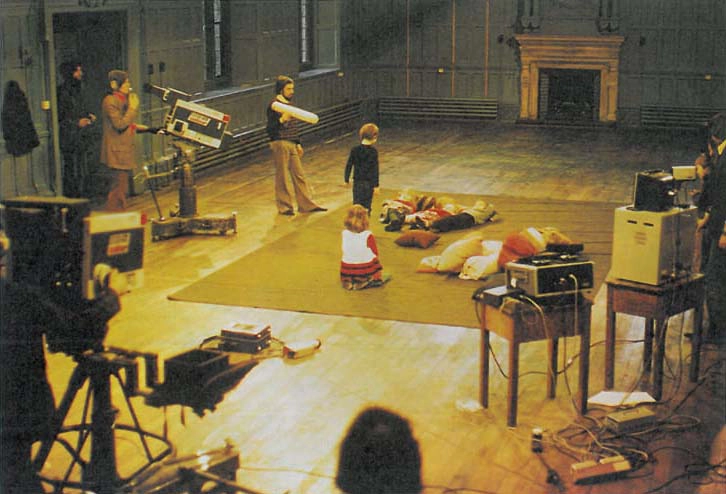
Children and Video, 1976, still from programme made by the Art and Environment course and the BBC
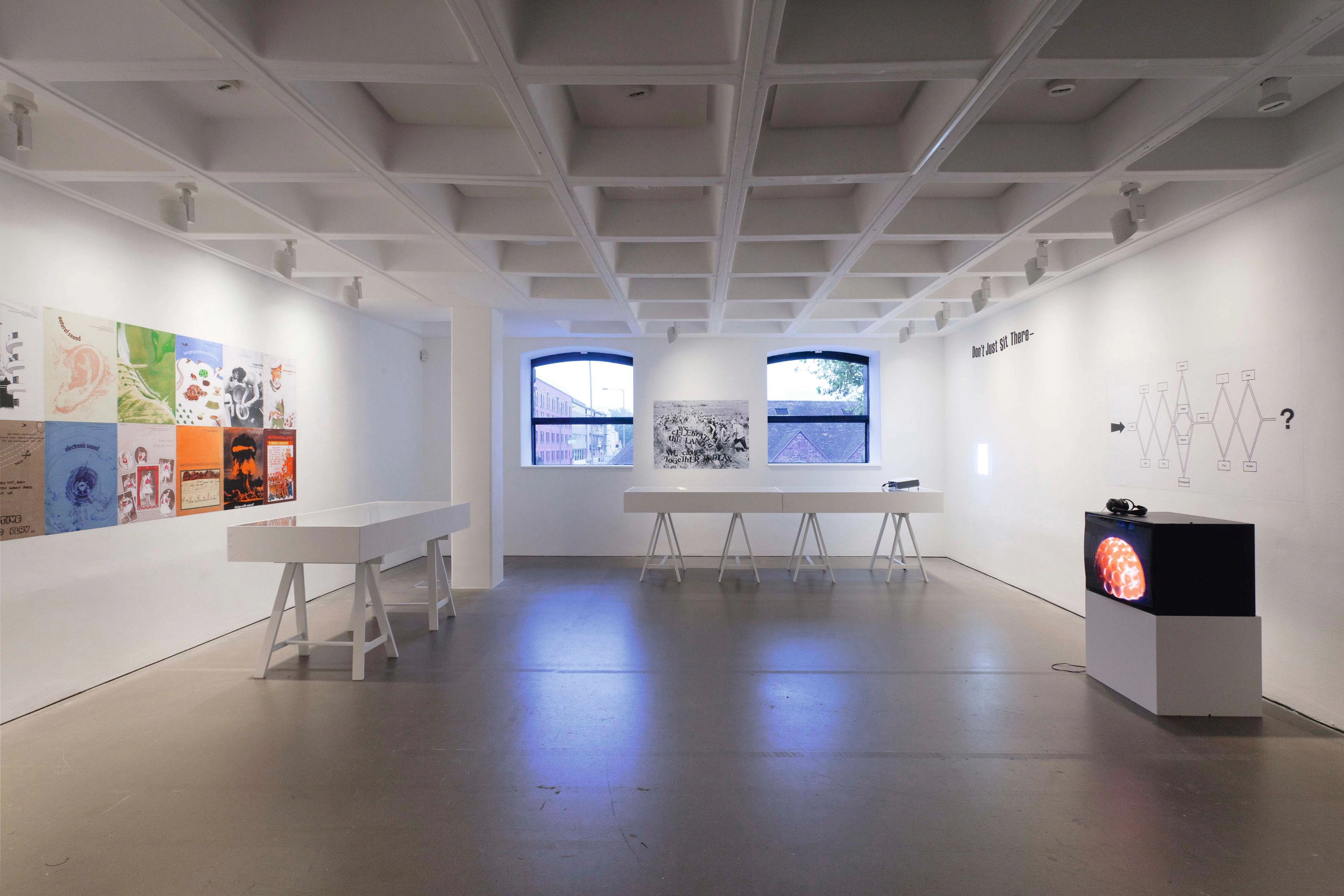
TAD 292, 2012, archival display, ‘Rise Early, Be Industrious’, Arnolfini, Bristol
TAD 292, 2012, archival display
As part of my solo exhibition ‘Rise Early, Be Industrious’ I also curated a display of archival material from The Open University’s interdisciplinary Art and Environment course which was officially titled ‘TAD 292’ (referring to Technology, Art and Design). The archival presentation comprised course material, including television programmes, letters, vinyl records, artworks, posters, course books and other printed matter.
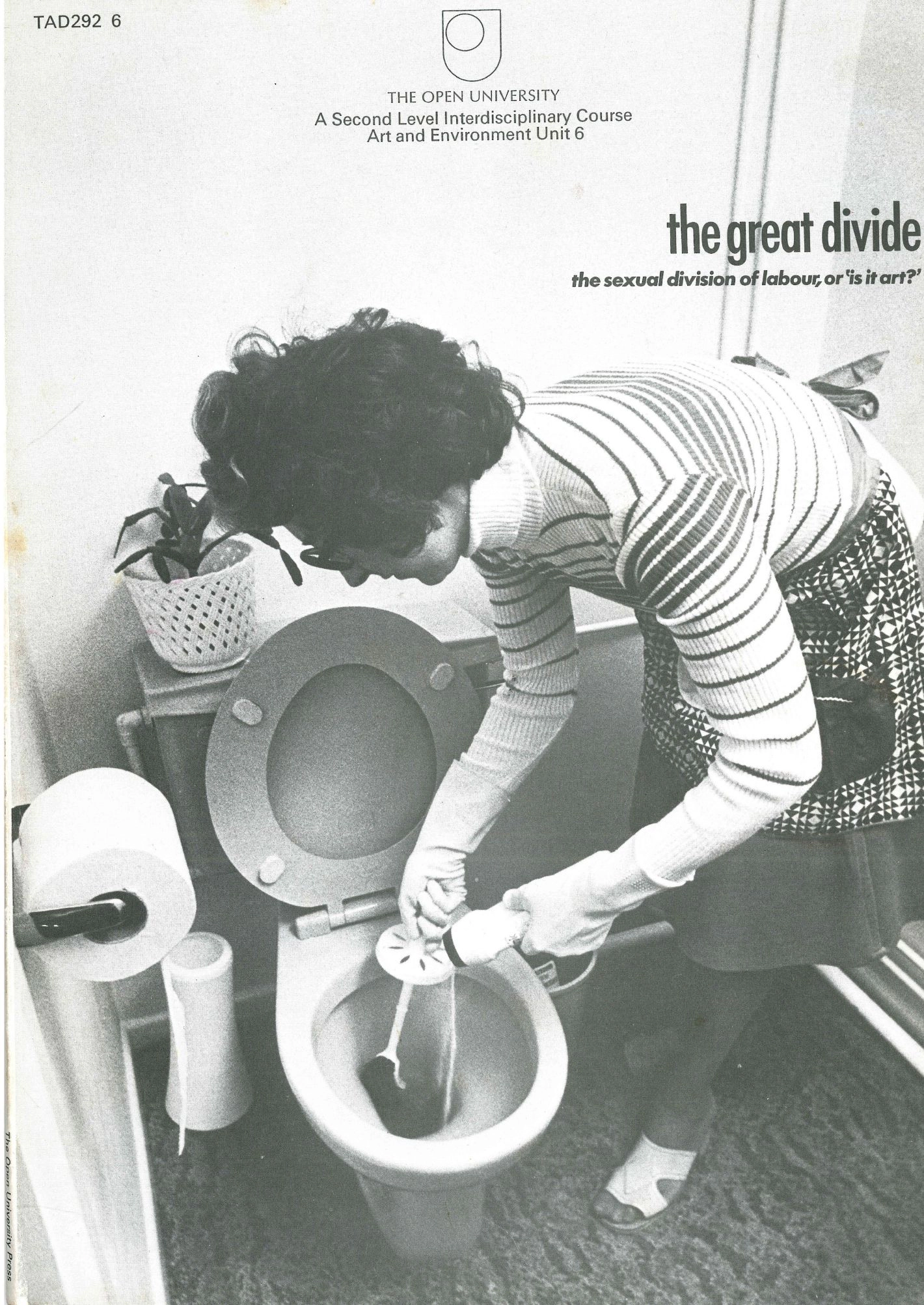
The Great Divide, 1976, front cover of Art and Environment course book
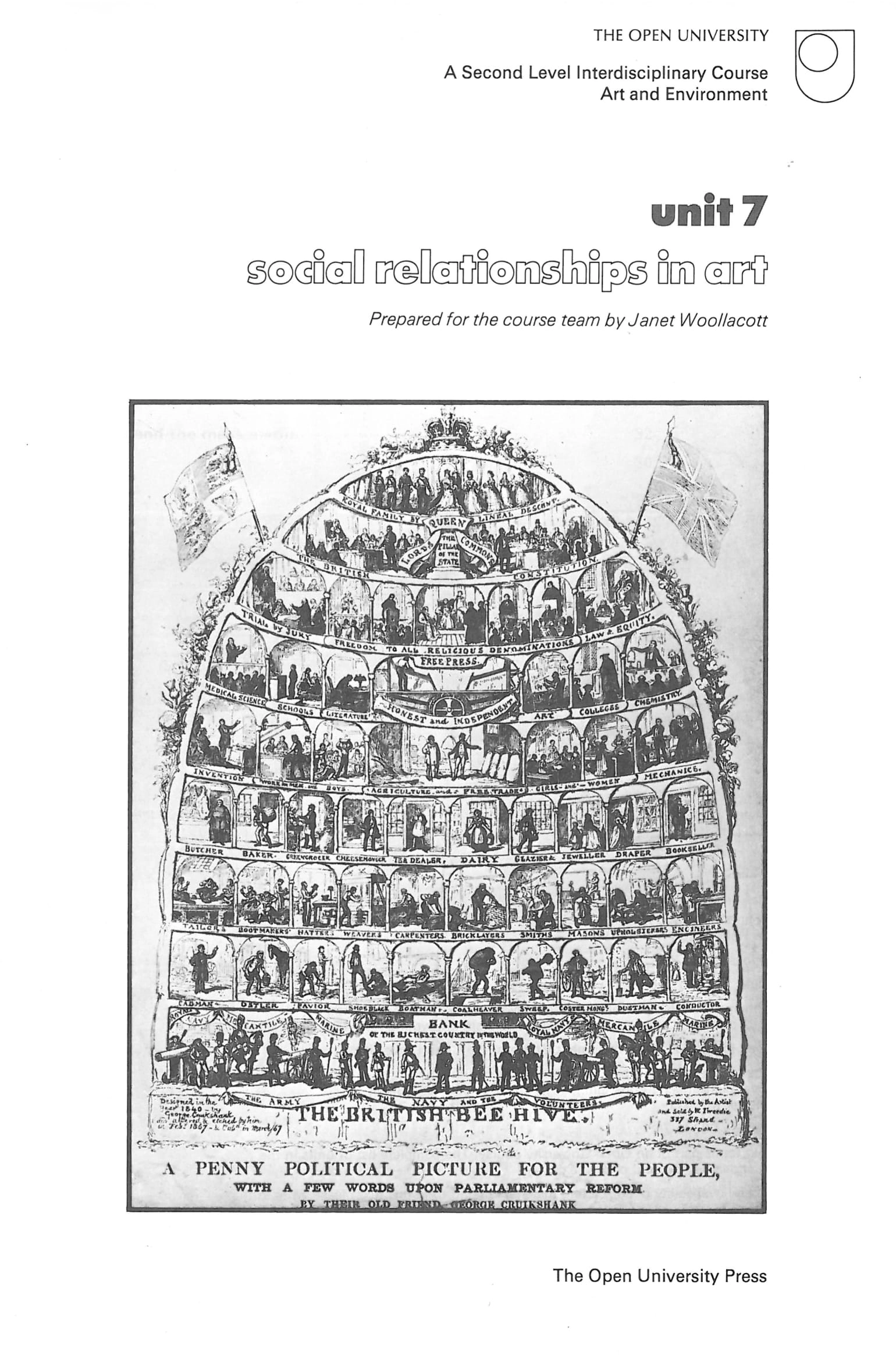
Social Relationships in Art, 1976, inside cover of Art and Environment course book showing George Cruikshank's The British Beehive (1867)
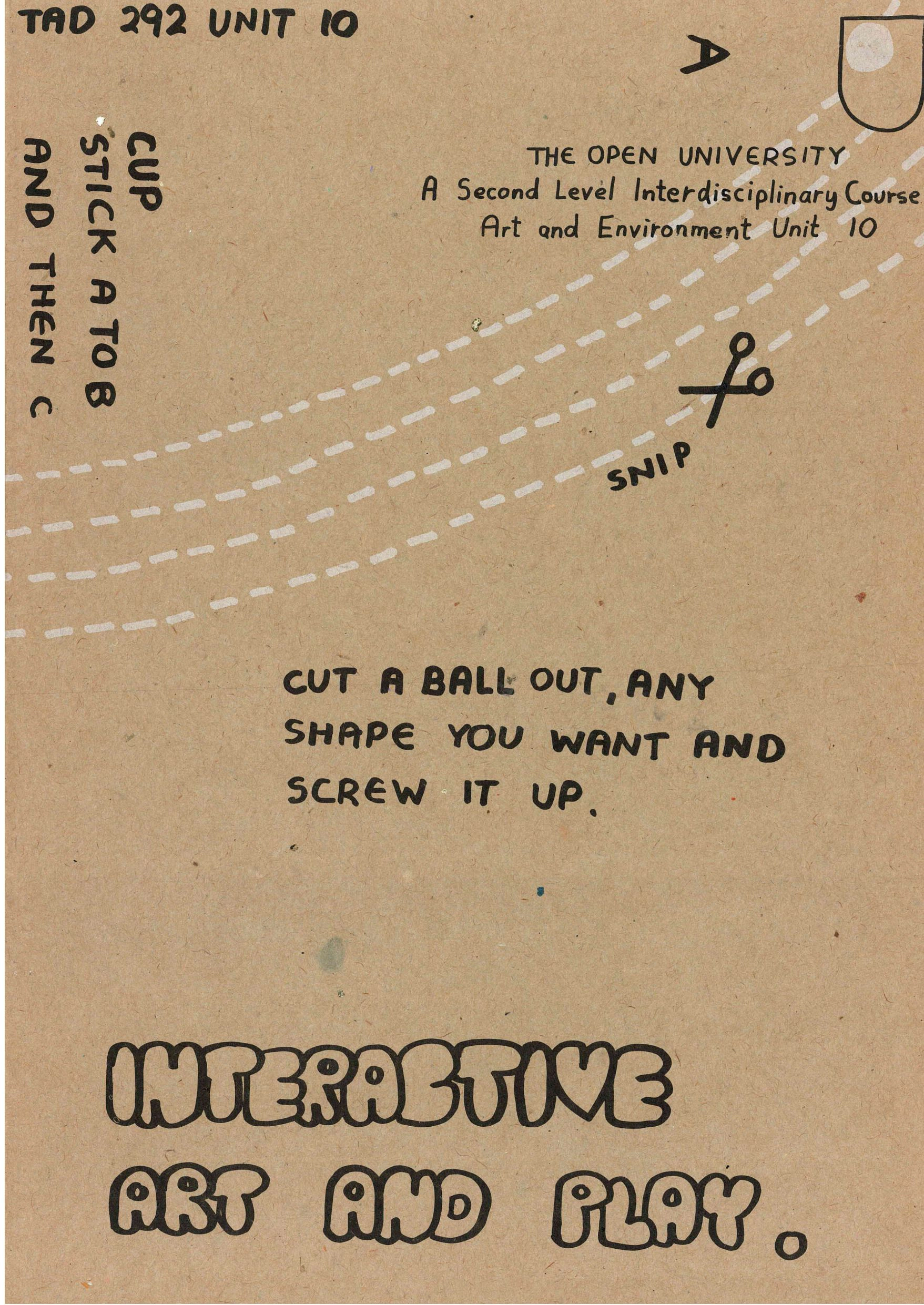
Interactive Art and Play, 1976, front cover of Art and Environment course book
Art and Environment emphasised ‘playfulness’ and creativity as tools for liberation, aligning itself with many of the activist movements emerging in the late 1960s and early 1970s, including Women’s Liberation, the Community Arts Movement and Environmentalism. Students were asked to start with their own experiences at home, mapping their locale and the environment around them, in order to make art that was relevant to society.
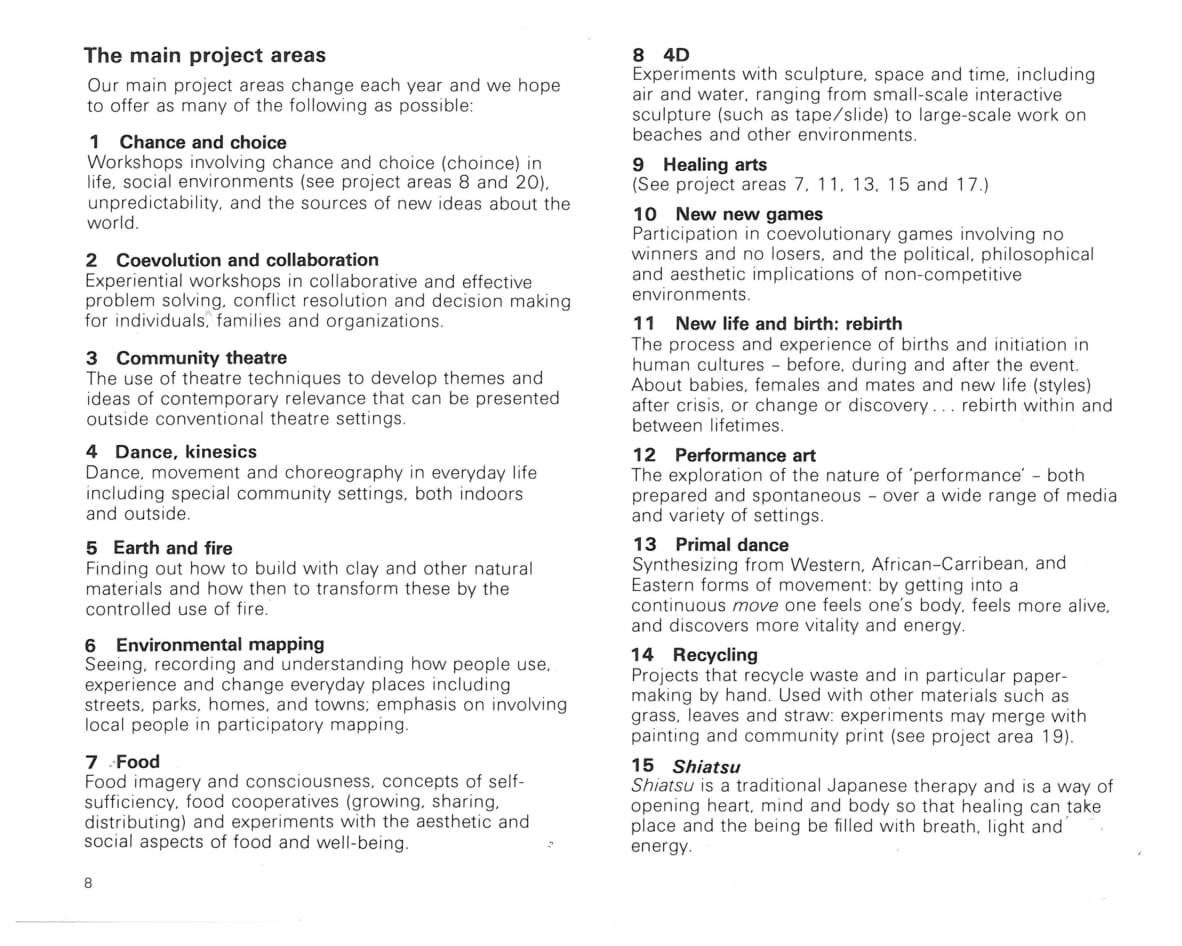
Art and Environment summer school course book, 1976, detail
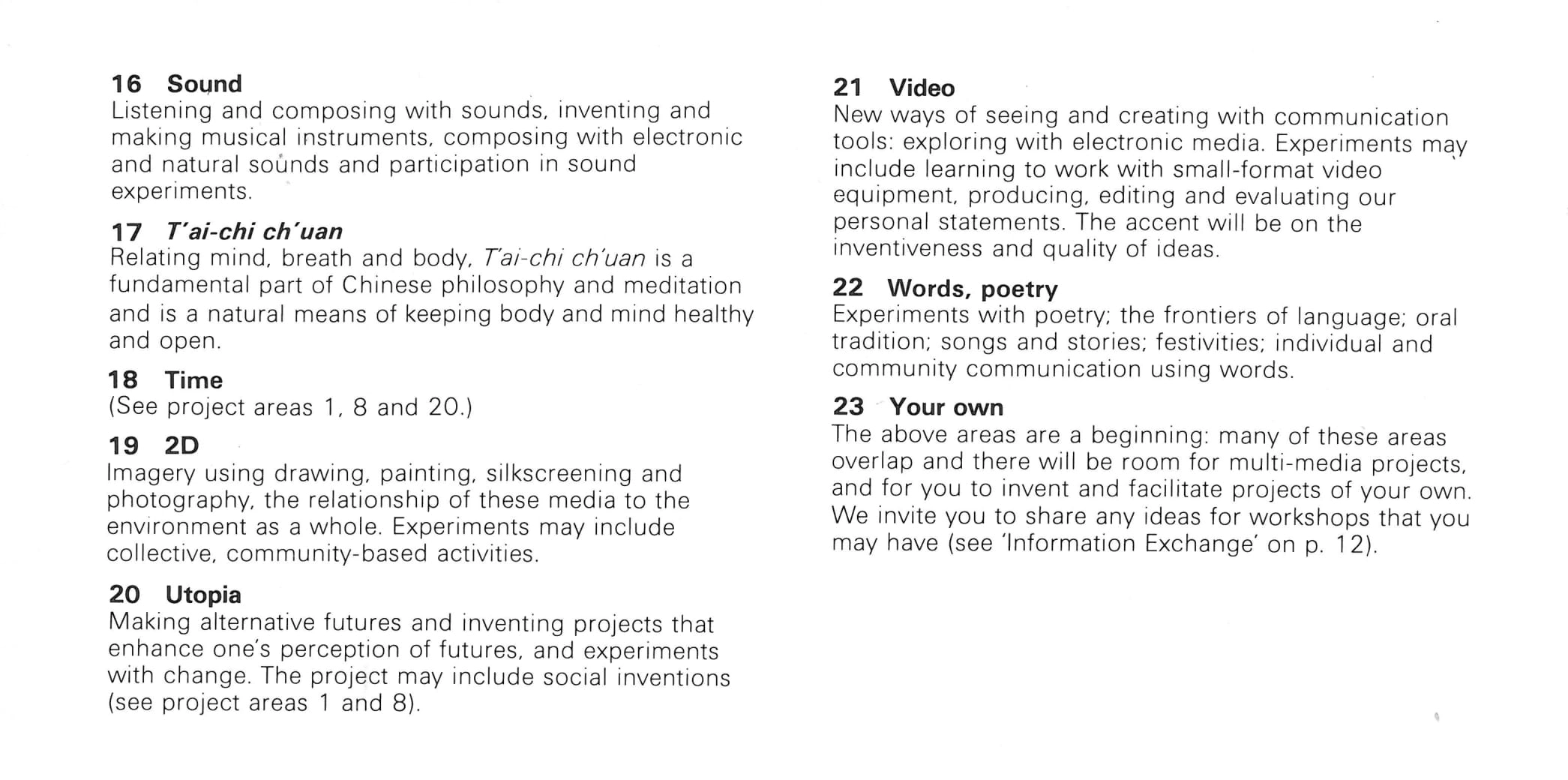
Art and Environment summer school course book, 1976, detail
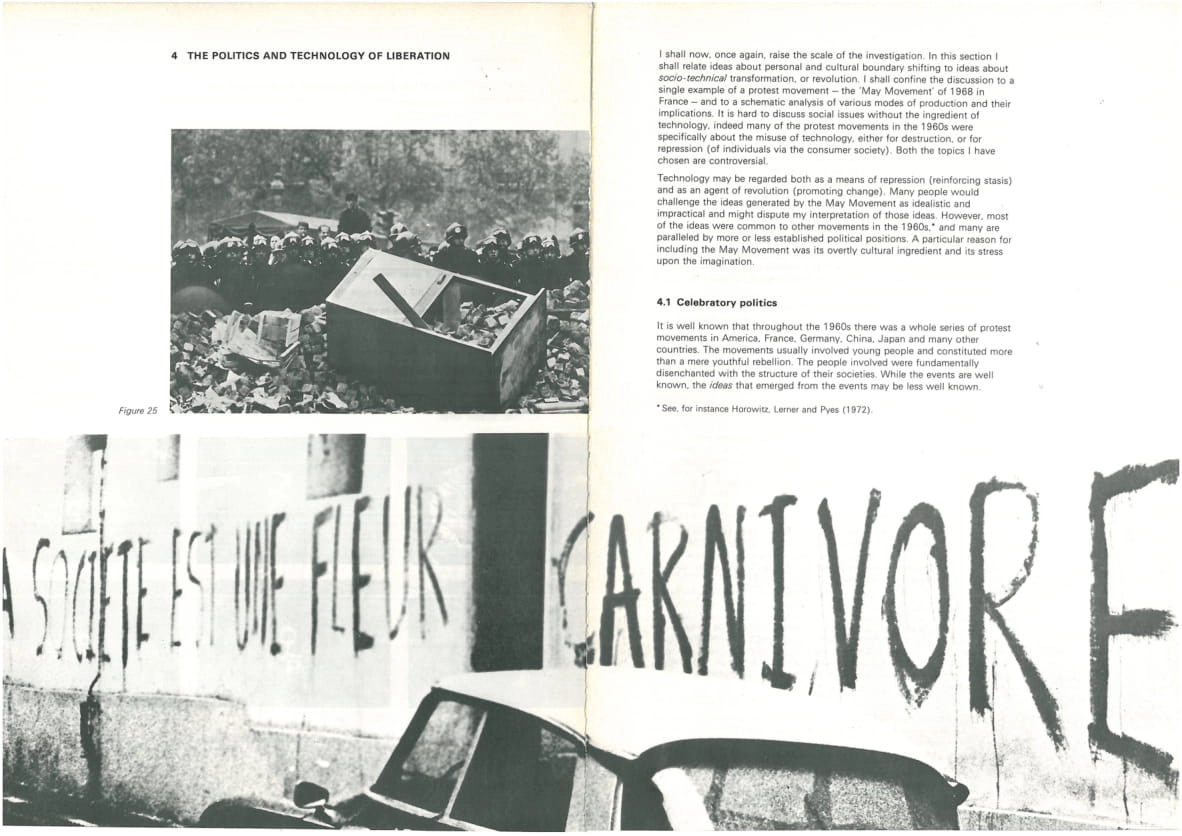
Art and Political Action, 1976, Art and Environment course book, detail
Further Reading
‘Olivia Plender in Conversation with Chris Crickmay, David Harding and Susan C. Triesman about Art and Environment’, published in Rise Early, Be Industrious, Sternberg Press, 2016
(download)‘Our Time of Teaching’: Maeve Connolly on Olivia Plender, published in Rise Early, Be Industrious, Sternberg Press, 2016
(download)Rise Early, Be Industrious, exhibition catalogue, published by Sternberg Press, 2016
(buy the book)‘Building Blocks as Tall as Buildings: Artists working with Early Child Pedagogy’, by Anna Craycroft, ==#, edited by Matt Keegan, published by Capricious, 2015, featuring an interview with Olivia Plender
(download)==#, edited by Matt Keegan, published by Capricious, 2015
(buy the book)